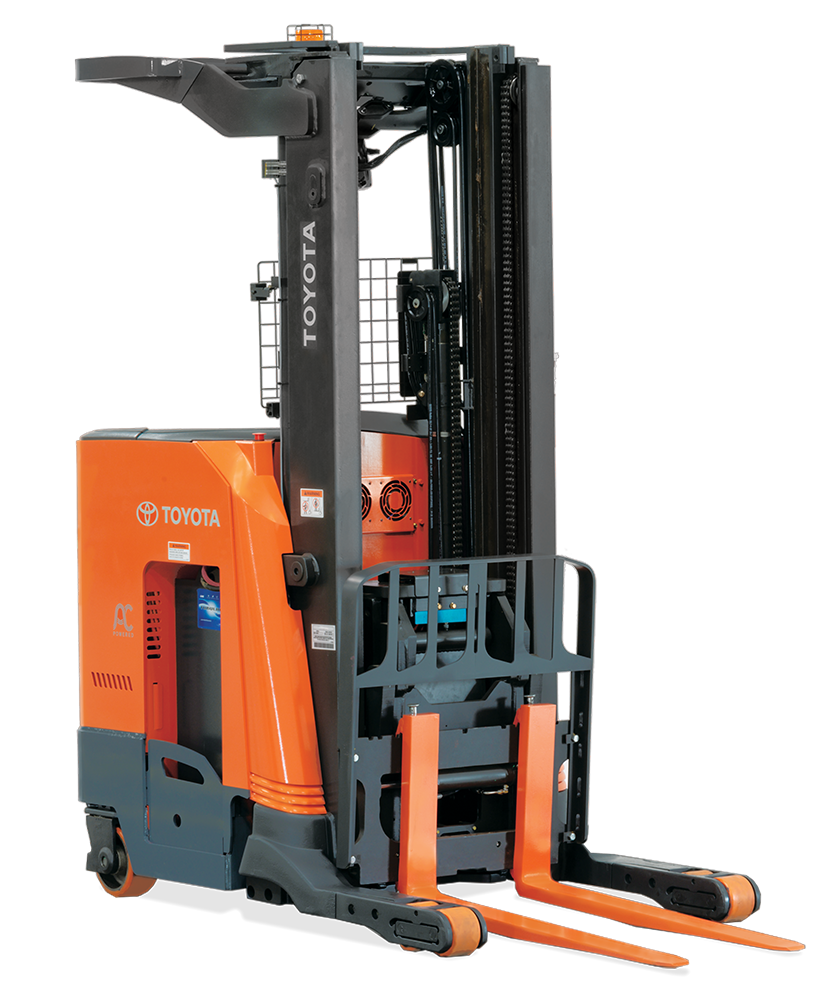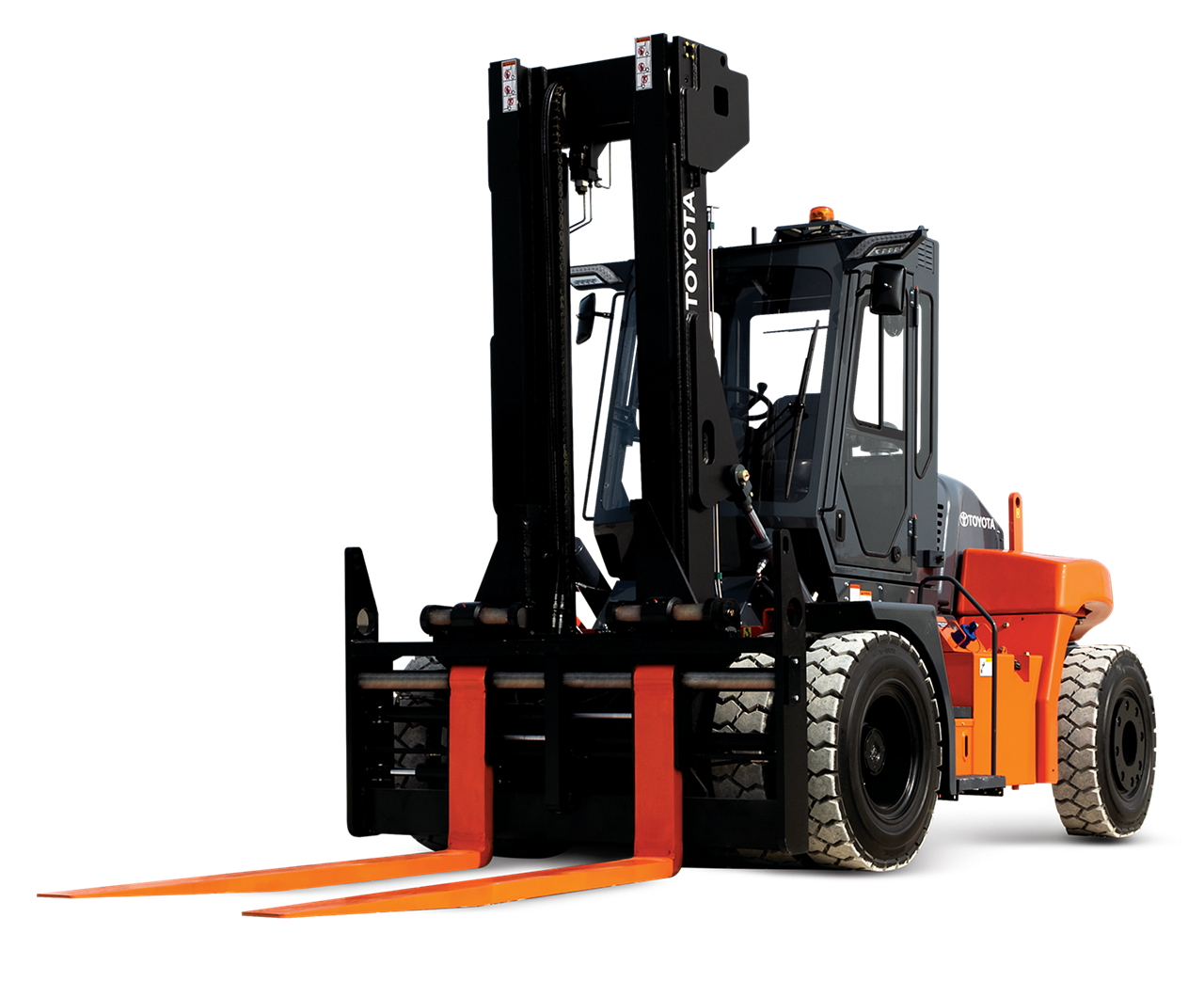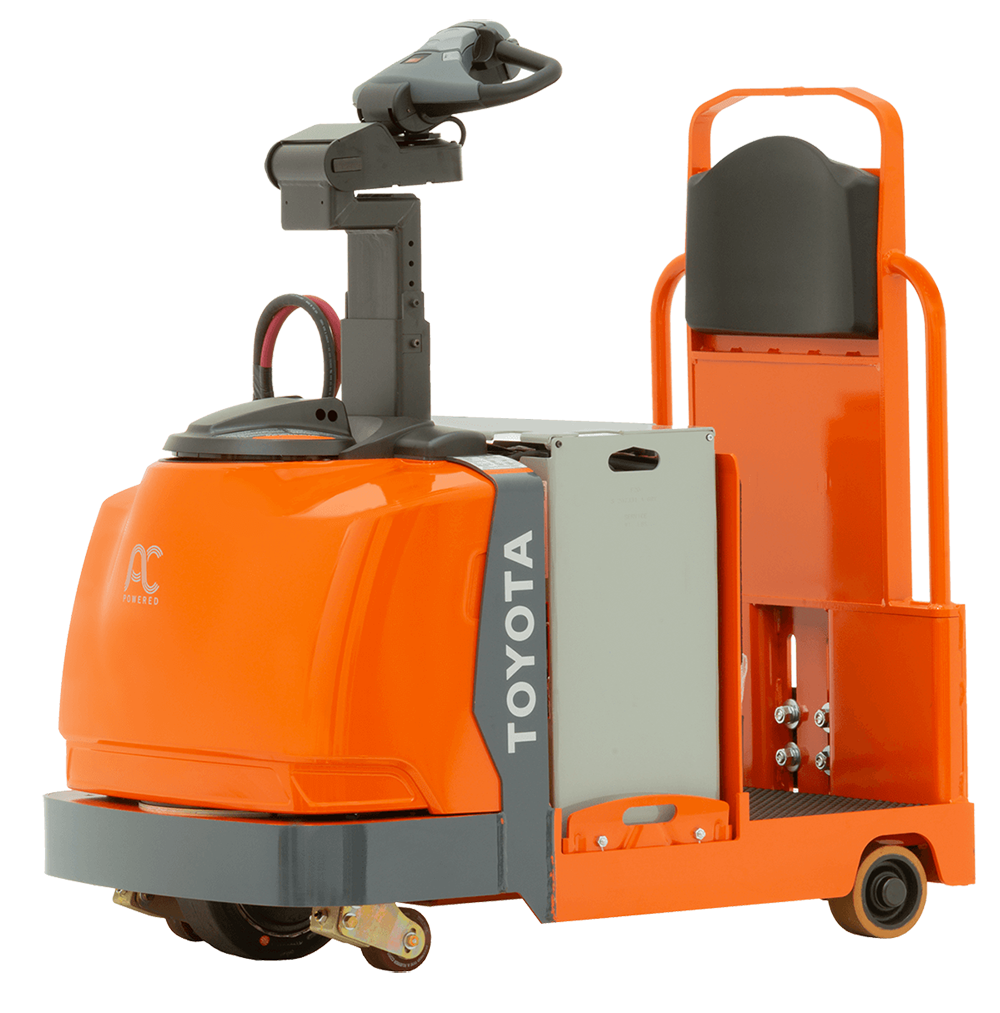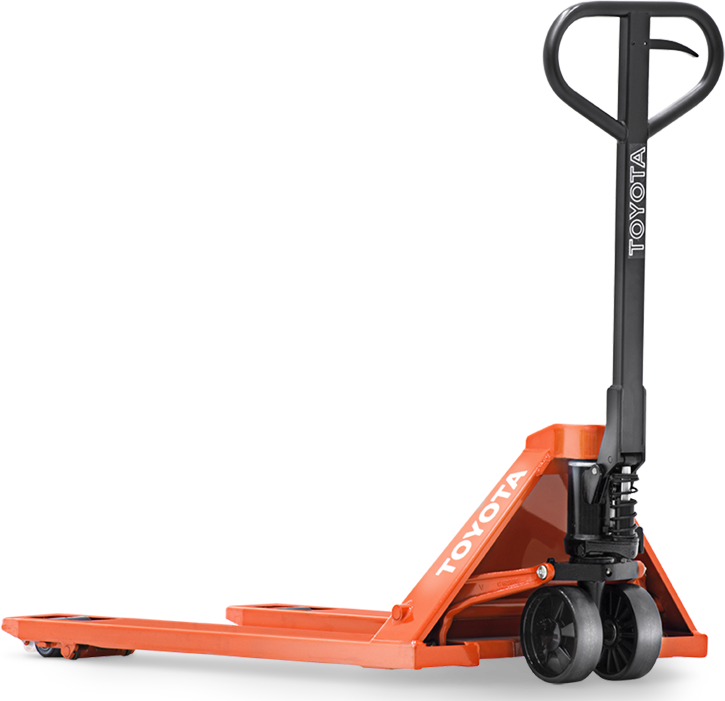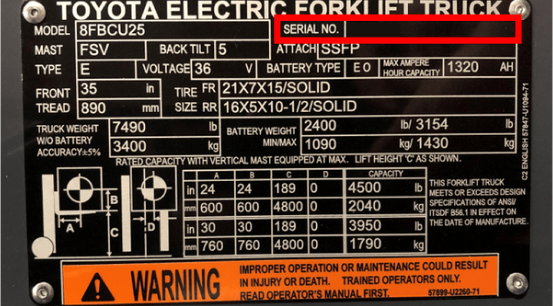Please click below to sign in to your MyToyota account
Hydrogen Fuel Cell Forklifts: An Alternative Energy Solution

As electric forklifts continue to grow in popularity, manufacturers are making significant efforts to find ways to improve run-time and performance to match – or even exceed – their internal combustion (IC) engine counterparts.
Environmental concerns and the availability of natural resources – such as coal, oil, and natural gas – are also driving the need to find a sustainable, long-term renewable energy solution.
Hydrogen is one viable alternative energy source. When it comes to material handling equipment or even automobiles and factories, hydrogen fuel cells have proven to be a realistic replacement for today’s conventional means of powering machinery and equipment.
If you’re interested in what hydrogen can do for you and your business, here are some key insights into how fuel cells work, and how they can ultimately impact your bottom line.
What Is Hydrogen?
Hydrogen is a chemical element that can be found in natural resources like plants and water. While there is a finite amount of naturally-occurring hydrogen in the atmosphere, the element can be produced in alternative ways, including steam reforming, electrolysis, and gasification.
What Is a Fuel Cell?
A fuel cell is a cell that produces an electric current as a direct result of a chemical reaction. The chemical reaction produces electricity that is used to power a load which, for our purposes, is a forklift. Fuel cells are used to power a wide range of products today, from small electronics to buses, and even certain industrial facilities.
How Does a Fuel Cell Forklift Work?
Proton exchange membrane (PEM) fuel cells are currently the most viable type used for powering industrial equipment such as forklifts. Similar to a battery, PEM fuel cells utilize a cathode, anode, and an electrolyte to transfer electrons along an electrical path to power the forklift. Unlike a lead-acid battery, however, this process occurs using only hydrogen and oxygen found naturally in the atmosphere.
The electrolyte, in this case, is a membrane that allows only positively charged ions to pass to the cathode, leaving negatively charged electrons to power the forklift. When the electrons, positively charged ions, and oxygen pulled in from the environment come together at the end of the circuit, it creates water as a byproduct that flows out of the fuel cell.
What Are the Advantages of Fuel Cells In Material Handling?
Hydrogen-powered vehicles are similar to their IC engine counterparts in that they can be refilled quickly and easily at a fueling station. They also require less maintenance because they don’t need the watering, equalizing, charging, or cleaning that is required with lead-acid batteries.
While the bottom line is important to all businesses, it’s also important to consider the positive impact that fuel cells can have on the environment. With zero carbon emissions and potentially less reliance on natural resources to produce, fuel cells are a viable source of sustainable energy capable of powering more than just forklifts for the foreseeable future.
Customers who are interested in the advantages of fuel cell technology may also be interested in lithium-ion batteries, another viable alternative energy source. Lithium-ion batteries carry many of the same advantages as hydrogen fuel cells, including lower maintenance costs, faster refueling/recharging times, and reduced environmental impact. In addition, lithium-ion batteries offer significantly lower infrastructure costs compared to fuel cells as they are powered by your facility’s electrical grid.
If you are interested in learning more about alternative energy sources or electric solutions in general, please reach out to your local, authorized Toyota Forklift Dealer.
Note: Toyota integrated hydrogen fuel cell forklift models are currently not available in North America. Please contact your local, authorized dealer for more information.




